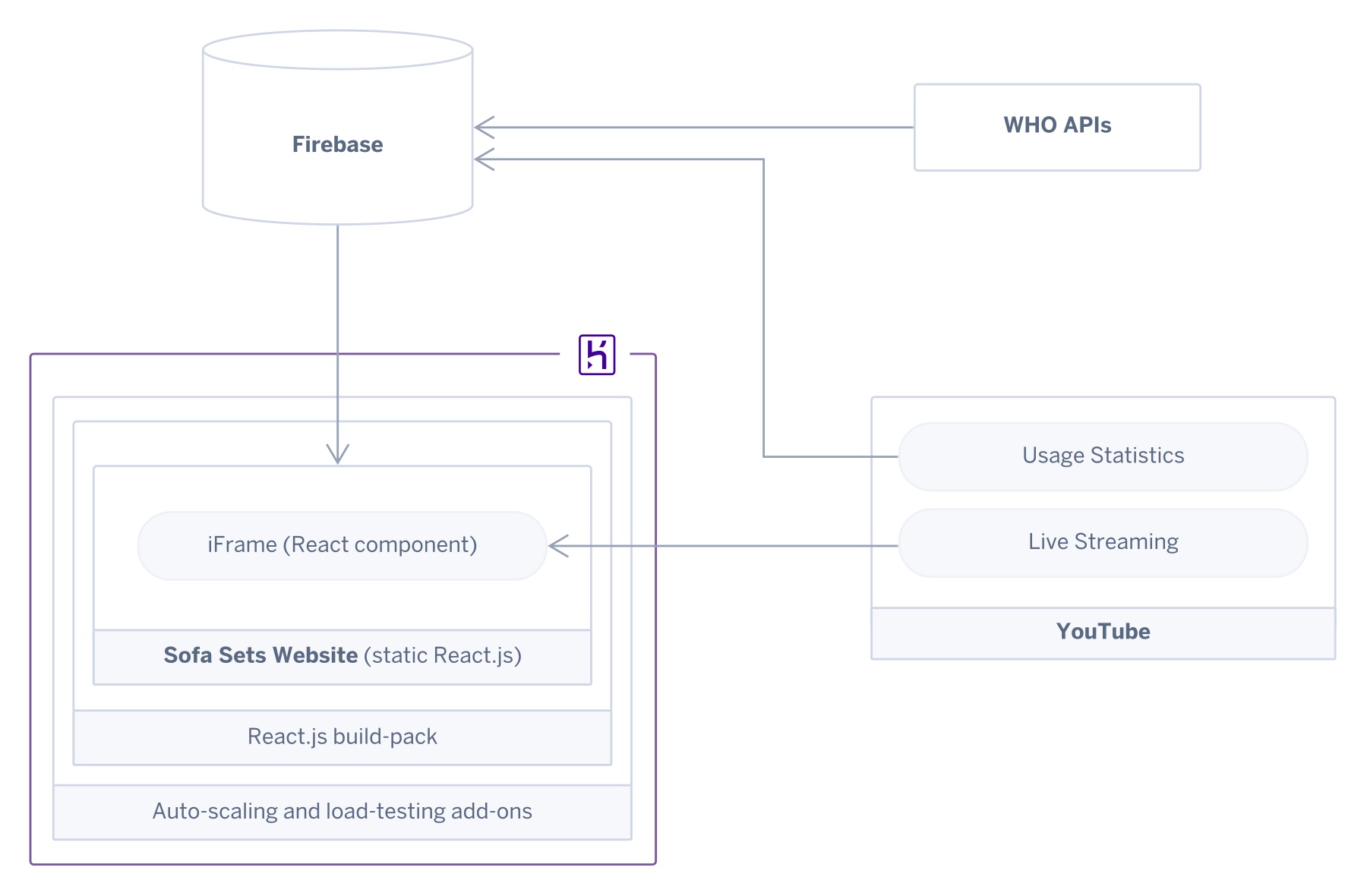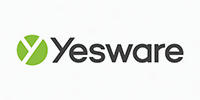
Heroku Powers Business Transformation for Wunderman Thompson’s Clients
The global agency uses Heroku Connect to unlock value in Salesforce data and deliver solutions at scale.
Launching enterprise-grade software quickly is part and parcel of life at a digital agency. As part of the creative transformation company, WPP Group, Wunderman Thompson specializes in finding innovative ways to help brands across the world grow.
However, when the COVID-19 pandemic forced the agency to postpone its own creativity conference, the tables were turned. With just one week to go, Wunderman Thompson faced a seemingly impossible task: create a meaningful online experience for tens of thousands of attendees who had been expecting an in-person conference. With experience delivering such quick turnaround projects on Heroku, their Salesforce consulting team had just the right expertise to pull it off.
The result was Sofa Sets, an online music festival that scaled seamlessly on Heroku to serve as many as 200,000 concurrent attendees. Sofa Sets is just one of the projects where Wunderman Thompson's distributed engineering team uses Heroku to create innovative, data-driven digital experiences at scale.
Slashing time to market with Heroku
Companies come to an agency like Wunderman Thompson when they have an idea for improving their business, but need help to make it a reality. Naturally, those clients want to see their ideas come to life as quickly as possible.
Heroku helps Wunderman Thompson meet those expectations. The platform's advantages start at the prototyping stage. Heroku's managed dev stack and deployment environment enables the agency's development teams to get straight to work on building the app. Specifically, Heroku Buildpacks, Heroku Pipelines, and low cost Heroku Dynos let the team deliver proofs of concept without the time-consuming complexity of building and orchestrating containers. Quick turnaround times keep clients engaged and minimize the time that consultants must spend on non-billable tasks.
Heroku enables us to go from proof of concept to enterprise solution in months, rather than years, by running an expertly tuned dev and deployment stack on our behalf. Nick Brennan, Lead Software Developer, Pierry Inc (part of Wunderman Thompson)
Heroku integrates with Salesforce to enable friction-free purchasing
Heroku's managed platform helps Wunderman Thompson deliver client apps to market quickly. However, the platform's tight integration with the broader Salesforce ecosystem is also a crucial element. The agency maintains a dedicated team of Salesforce specialists who also use Heroku to help clients get the most from their data.
In particular, Heroku Connect helps the team to unlock value in their clients' data by synchronizing it between Salesforce orgs and Heroku Postgres databases. This enables them to create apps that work with live Salesforce data, add new custom data objects within Salesforce, and transform data from external sources so that it can be used with Salesforce.
One common scenario is integrating Salesforce data into a client’s e-commerce activities. A recent business continuity project sought to solve the problem of how a California winery could do business in the face of the COVID-19 pandemic. For many wineries, in-person tasting events are an important source of revenue, as they enable people to try new wines and purchase those that they like. Wunderman Thompson wanted to find a way to recreate that spontaneous buying experience for a socially distanced world.
The answer was a mobile app on Heroku that lets people buy wine simply by holding an existing bottle up to the camera. This makes product selection straightforward, but it's only with Heroku Connect that the purchase process becomes entirely frictionless for existing customers. Once the Heroku app has identified the wine brand, type, and year, it then uses Heroku Connect to fetch the customer's data from Salesforce Commerce Cloud in order to fill out payment and delivery details. Once the transaction is complete in the app, sale data flows back through Heroku Connect to record the purchase in the customer's Salesforce record.
Without Heroku's seamless integration with Salesforce, data synchronization between a client's CRM system and mobile app would take weeks, if not months, of development.
Creating customer data platforms with Heroku Connect and Salesforce
Integrating data from Salesforce and external sources is core to the value that Wunderman Thompson brings to its clients’ businesses. Using Heroku Connect, the agency can deploy custom code that works on data from those sources and seamlessly synchronizes it back to Salesforce.
Many businesses find that related data builds up over time in separate systems. For example, a single customer might have a record in the company’s CRM, another in their e-commerce platform, and yet another in a customer service tool. Siloing data in that way makes it harder, if not impossible, to gain a 360-degree view of the business. In addition, it’s only by consolidating data into a single platform that companies can unlock hidden insights using big data techniques.
Heroku provides an ideal platform for such consolidation, and the agency’s Salesforce consultants have created a three step process to rationalize the data using custom apps running on Heroku. First, they develop an app that extracts data from third-party sources and stores it in Heroku Postgres. The second step is to use techniques, such as fuzzy logic pattern matching, to identify which records belong together. Lastly, the app creates new consolidated records and uses Heroku Connect to synchronize the data with the client’s Salesforce org.
However, it’s not just the functionality that is important. As with all of their projects, fast turnaround is essential to meeting client expectations. In a recent project with a major retailer, Wunderman Thompson integrated the company’s loyalty program data with that from its global systems and regional point of sale systems. Typically, such projects take years to develop and launch. By deploying to Heroku, this project took only a few months.
Having built the tooling to consolidate client data in this way, the next step for Wunderman Thompson is to launch an off-the-shelf customer data platform. The simplicity of running their solution on Heroku means that the Wunderman Thompson team will be able to focus on meeting customer needs rather than on DevOps tasks.
With Heroku Connect, we can complete client data consolidation projects faster and with greater accuracy because integration with Salesforce has already been done for us. Josh Pierry, Founder, Pierry Inc (part of Wunderman Thompson)
Standing up an application on Heroku in 15 minutes
How does a digital agency apply its experience of working on such client projects to launching its own online music festival? In the case of Wunderman Thompson’s Sofa Sets, the creative program was already in place for the in-person event. That made the online festival primarily a technology project.
With just one week to go before the festival, the agency’s leadership set their project team to work. First up was to create a compelling digital experience that would bring some of the excitement and interaction of an in-person event to online attendees. This came in the form of a React app, backed by Firebase. However, while developing the app took relatively little time, the unanswered question was: how could the team set up and configure the infrastructure needed to deploy and scale the app — with just days to go?
Sofa Sets’ project team had been unfamiliar with Heroku when the agency’s Salesforce consulting team presented Heroku as a good solution to their tight deadline. The project’s app developers were skeptical that Heroku could be up and running in time to launch the event. They had been used to working with other cloud solutions, such as AWS, that required significant custom DevOps work simply to deploy the app, with further architectural configuration necessary to handle scale. Heroku, on the other hand, provided a deployment-ready environment with an ecosystem of add-ons that could help make app operations easier. As it turned out, it took just 15 minutes to stand up the Heroku environment for the Sofa Sets app.

While that was impressive, the question of scale remained. Not having built an event app like this before, the Sofa Sets team did not know how many concurrent attendees to expect. The Salesforce consulting team again proved helpful in their recommendations based on past experience with Heroku. They suggested using two Heroku Add-ons in particular: loader.io to perform load testing, and Adept Scale to automatically scale dynos during the event to meet changing traffic patterns.
The day of the event started with 20,000 people logging into the Sofa Sets app concurrently. While numbers fluctuated throughout the day, the Heroku platform was truly tested when one artist tweeted a link to the event. Within just a few minutes, 200,000 people had logged in and were taking part. For a team using an unmanaged IaaS platform, that would have been a moment of panic. However, with help from the Adept Scale add-on, the Heroku platform seamlessly and autonomously spun-up additional dynos to handle the extra load.
The Heroku Add-on Adept Scale enabled us to quickly implement an autoscaling solution and deliver a live experience to over two hundred thousand concurrent users. Josh Pierry, Founder, Pierry Inc (part of Wunderman Thompson)

Bringing integrated Heroku and Salesforce data to more customers
Digital agencies build their reputations not only on the creativity of their work, but also on their timeliness. For Wunderman Thompson, Heroku and the broader Salesforce ecosystem are crucial enablers of the agency’s inventiveness and its ability to deliver at the moment of greatest impact.
Heroku’s reliability, scalability, and ease of use means that the agency’s teams can direct their attention exclusively to producing unique solutions to their clients’ challenges. Whether they are delivering an online music festival for thousands, helping an multinational retailer consolidate customer data, or enabling business continuity for a regional winery, Heroku enables Wunderman Thompson to bring ideas to market faster.
Inside Wunderman Thompson on Heroku
Each Wunderman Thompson project on Heroku is a unique solution for that client's needs. Typically, the agency uses Heroku as a platform to deploy custom software that uses Heroku Connect to synchronize data between Heroku Postgres and Salesforce orgs. Teams make use of Heroku Add-ons Adept Scale, loader.io, and Papertrail to take care of automated scaling and instrumentation.
Learn more about how Wunderman Thompson delivered their online music festival, Sofa Sets, in the blog post.
Heroku helps firms like Wunderman Thompson grow their business. Learn more about Heroku for digital and software development agencies.
More case studies
-

Selling Smarter: Heroku App Brings the Power of Salesforce to the Inbox →
-
Yobota Fuels Fintech Innovation with a Suite of Core Banking Services on Heroku →
-

IoT App on Heroku Orchestrates the Connected Home by Syncing Home Devices and Wearables →
-

Buying Bandwidth Has Never Been Easier with Zayo’s E-Commerce App Running on Heroku + Salesforce →
In the spotlight
- View all
- Code[ish] podcasts
- •
- Blog posts
- •
- Community stories



